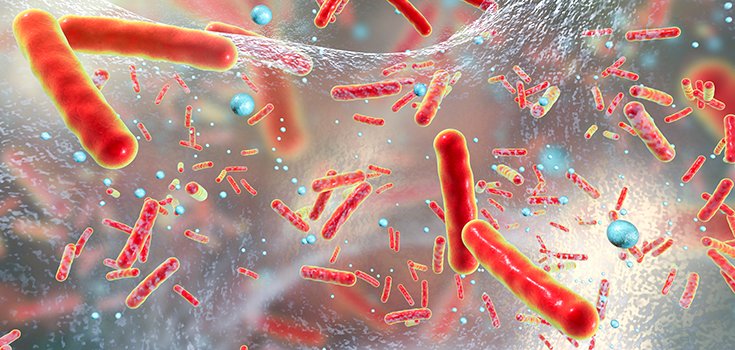Infectious Bacteria Stealthily Avoid Antibiotics Through “Hibernation”

The term “superbug” refers to bacteria that have become resistant to the antibiotics normally used to get rid of them. Now, a new study suggests that the term is more fitting than scientists previously realized. It turns out that these infectious bacteria stealthily “hibernate” during antibiotic treatment, which further prevents the medications from killing the bugs. [1]
Almost all infectious bacteria develop some antibiotic-resistant traits, so a substantial fraction of bacteria survive a course of antibiotics. But a small number of bacteria, including some of the world’s most dangerous pathogens, can resist antibiotics without needing these traits.
Read: The Problem of Antibiotic Resistance is Getting Much Worse
A small portion of pathogenic bacteria can survive a course of antibiotics by lying dormant until the danger passes. They simply hibernate, according to researchers from the University of Copenhagen. Once a person finishes taking their medication, these bacteria “wake up” and go back to being nasty, disease-causing bugs.
Professor Kenn Gerdes of the University of Copenhagen’s Department of Biology said:
“We studied E. coli bacteria from urinary tract infections that had been treated with antibiotics and were supposedly under control. In time, the bacteria re-awoke and began to spread once again.”
Antibiotics typically work by targeting a bacteria cell’s ability to grow, which means that a hibernating bacterium remains untouched by the drugs. It is not technically resistant.
Gerdes explained:
“It is temporarily tolerant because it stops growing, which allows it to survive the effects of an antibiotic.”
It’s still a mystery why some bacteria go into a dormant stage while others don’t, considering hibernating bacteria share the same genetic characteristics as other bacteria in a given population.
“Antibiotics are usually directed at the bacterial growth processes. Genetically, these bacteria have all the same features of the other bacteria in the population. It is rare and affects only 1 in 10,000 to 1 million cells. That makes it hard to investigate.” [2]
The researchers found that an enzyme in dormant bacteria is responsible for putting bacteria into a dormant state, which allows them to avoid being attacked. But right now it’s anyone’s guess as to why this enzyme gets triggered in the rare bacterium. [1]
Gerdes said:
“The discovery of this enzyme is a good foundation for the future development of a substance capable of combatting dormant bacteria cells.”
Read: 5 Natural Antibiotic Solutions for Antibiotic-Resistant Infections
Much more research – and funding – is needed to understand why some bacteria become dormant, but it will hopefully lead to more effective antibiotics in the future.
Gerdes said:
“The enzyme triggers a ‘survival program’ that almost all disease-causing bacteria deploy to survive in the wild and resist antibiotics in the body. Developing an antibiotic that targets this general program would be a major advance.”
The study is published in the journal Science Signaling.
Sources:
[1] Science Daily
[2] Phys
